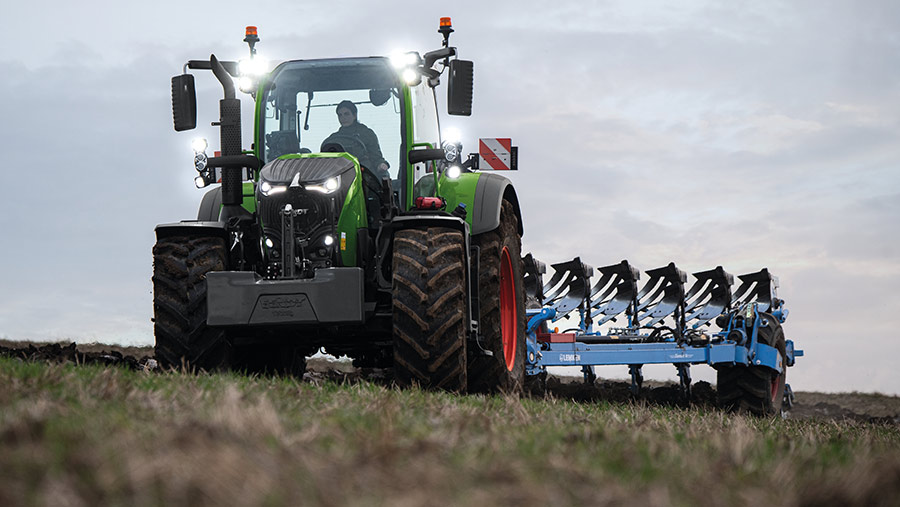This Week in Farming: Energy bills, beef myths and new Fendts
 © Fendt
© Fendt Welcome back to This Week in Farming, your regular round-up of the best content on the Farmers Weekly website in the past seven days.
Every Saturday we round up five of the biggest topics that have got people talking, and look ahead to what’s coming up in this week’s Farmers Weekly podcast.
Ukraine focus
Russia’s invasion of Ukraine has had a multitude of global effects, but of course no financial impact here comes close to the horrific impact it has had on the Ukrainian people, including their farmers.
This week, we had fresh insight from a Ukrainian agricultural journalist, Ihor Pavliuk, on the mortal danger faced by growers simply trying to work on land littered with unexploded munitions.
One of the other biggest problems facing cereal farmers has been the inability to shift stored crops from on-farm barns and bins as exports ground to a halt after the onset of war.
A UN-brokered agreement to allow this flow to resume appears to be holding for now, with 61 ships loaded with 1.5m tonnes of food now departed since it came into effect, bringing some relief both to farmers and consumers.
Energy crisis
The unfolding impact of Russian President Vladimir Putin’s use of country’s gas exports as a tool is now known to everyone, with business owners not shielded by the energy price cap seeing the biggest cost increases.
Deputy business editor Lauren Harris spoke to Jodie Hisgett, head of commercial sales at NFU Energy, who revealed that some farmers are facing an increase in annual spend of up to 400% and pulled together the latest advice for those negotiating a new contract.
Other energy-intensive sectors have also been badly hit, including fertiliser manufacturers, with CF Fertiliser, Yara and others increasing prices and curtailing production across Europe.
This has heightened farmer interest in cutting application rates with a look at using an overwinter cover crop to supply part of the nitrogen requirements for next year’s sugar beet.
Myth busting
Even before the cost-of-living crisis, food and farming was rarely far from the spotlight amid ongoing scrutiny of the contribution of our sector to climate change.
In the rush to transition to a greener future, swathes of accusations have been made about the climate impact of livestock – some of which go beyond scientific reality.
In this excellent myth-busting piece, we’ve worked with the Sustainable Food Trust to tackle eight of the most commonly heard assertions, including “Too much land is devoted to livestock production”.
Elsewhere in environmental news, the Welsh government has announced it has simplified the application process for landowners interested in planting trees, with £32m on offer in two schemes.
Export boom
Even as lobby groups bicker about red meat, exports from UK farms have reached a record high, with shipments valued at £858m in the first half of the year, latest figures from HMRC have revealed, while cheese exports have also increased.
Yet livestock senior reporter Michael Priestley writes that beef production is unlikely to increase to meet this additional demand, with a surge in cull cow sales forecast this autumn, as herd managers look to disperse or cull hard in the face of rising production costs.
Over in the US things are similar, with beef producer Daniel Mushrush seeing costs soar by 30% compared with a year ago and still rising.
Fendt unwraps new range
While red meat leaves the country, many of the nation’s favourite tractor brands are shipped in from the other direction.
It was the turn of Fendt fans to celebrate this week as the Agco-owned brand unveiled a bigger and more powerful 700-series tractor range.
Read all about the host of changes in the new Gen7 models, including the new engine block.
Listen to the FW Podcast
Don’t forget the latest edition of the Farmers Weekly podcast with Johann Tasker and Hugh Broom, too.
This week, they’ll be discussing Liz Truss’s appearance at an NFU hustings event and much more.
Listen here or bring us with you in the cab by downloading it from your usual podcast platform.
